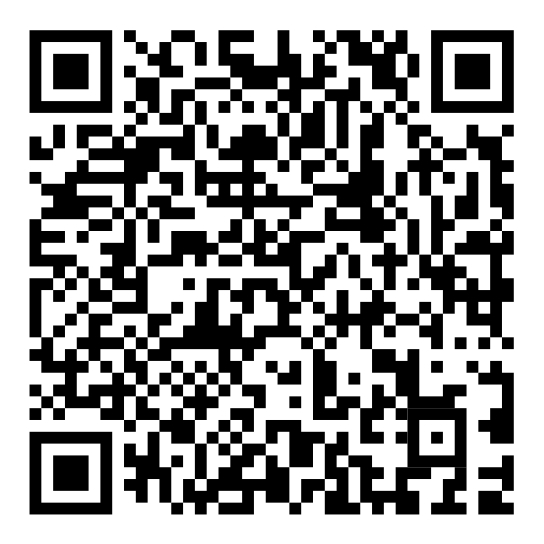Enhancing Learning Abilities through Problem-Based Learning: A Meta-Analysis at Sanggar Bimbingan Hulu Kelang
DOI:
https://doi.org/10.56972/jikm.v3i2.147Keywords:
educational challenge, innovative teaching, learning abilities, problem-based learningAbstract
Traditional learning methods in schools often involve passive activities such as listening, completing assignments, and focusing solely on textbooks. This lack of interaction between teachers and students, or among students themselves, can lead to ineffective learning and lower student outcomes. This research aims to analyze the effectiveness of the Problem-Based Learning (PBL) model in enhancing learning abilities at Sanggar Bimbingan Hulu Kelang. The study employs a meta-analysis method, with data collected through field observations and document reviews. The data was then analyzed both descriptively and qualitatively. The results indicate that the PBL model significantly improved students’ learning abilities, with an increase from a low of 8.9 percent to an average of 83.3 percent. The PBL model has proven effective in enhancing social studies learning outcomes for elementary school students. The findings of this research can assist teachers in selecting an appropriate learning model to improve student learning outcomes.
Downloads
References
Abuya, B. A., Mutisya, M., & Ngware, M. (2015). Association between mothers' education and grade six children numeracy and literacy in Kenya. Education 3-13, 43(6), 653-665.
Alston-Abel, N. L., & Berninger, V. W. (2018). Relationships between home literacy practices and school achievement: Implications for consultation and home–school collaboration. Journal of Educational and Psychological Consultation, 28(2), 164-189.
Anam, M. Z., Munir, A. N., & Hidayat, R. R. (2022). Muhammadiyah Diaspora Diplomacy in Protecting Indonesian Migrant Workers in Malaysia. Jurnal Hubungan Internasional, 11(1), 1-18.
Azizah, S. N., Mumfaza, R., Amala, R. A., Roisah, R., Agustin, V. H., Nurmelinia, N., Safitri, F., & Hidayah, N. (2023). Improvement of Literacy, Numeracy and Life Skills of" Sanggar Belajar" Students in Malaysia. Jurnal Pengabdian Masyarakat Nusantara, 3(1), 71-80.
Azizah, S. N., Setiadi, M. R., Agusman, D. D., & Raprap, F. E. (2023). Improving the English skills of elementary school students in tourism areas. Buletin KKN Pendidikan, 5(1).
Ball, J., Paris, S. G., & Govinda, R. (2014). Literacy and numeracy skills among children in developing countries. Learning and education in developing countries: Research and policy for the post-2015 UN development goals, 26-41.
Della Amrina Yusra, M. (2023). PENDIDIKAN ANAK PEKERJA MIGRAN. CV. DOTPLUS Publisher.
Dewi, U. N. M. (2018). Kebijakan KJRI Johor Bahru Dalam Mengatasi Permasalahan Pelayanan Pendidikan Bagi Anak-Anak Pekerja Migran Indonesia. SOSIAL POLITIK & EKONOMI.
Fauziyah, A. F., Amalia, N., & Kartikasari, E. D. (2022). Pengenalan Kebudayaan Indonesia Melalui Boanding Literasi SB Hulu Kelang Malaysia. Buletin KKN Pendidikan, 4(2), 161-166.
Friesen, A., Butera, G., Kang, J., Horn, E., Lieber, J., & Palmer, S. (2014). Collaboration and consultation in preschool to promote early literacy for children: Lessons learned from the CSS curriculum. Journal of Educational and Psychological Consultation, 24(2), 149-164.
Gumartifa, A., Syahri, I., Siroj, R. A., Nurrahmi, M., & Yusof, N. (2023). Perception of Teachers Regarding Problem-Based Learning and Traditional Method in the Classroom Learning Innovation Process. Indonesian Journal on Learning and Advanced Education (IJOLAE), 5(2), 151–166.
Lechner, C. M., Gauly, B., Miyamoto, A., & Wicht, A. (2021). Stability and change in adults' literacy and numeracy skills: Evidence from two large-scale panel studies. Personality and Individual Differences, 180, 110990.
Lehrl, S., Smidt, W., Grosse, C., & Richter, D. (2014). Patterns of literacy and numeracy activities in preschool and their relation to structural characteristics and children’s home activities. Research Papers in Education, 29(5), 577-597.
Melinda, C., & Rahmawati, I. (2021). Penerapan Metode Problem Based Learning Dalam Meningkatkan Keterampilan Berpikir Kritis Siswa Pada Mata Pelajaran Ilmu Pengetahuan Sosial. Jurnal Pendidikan Ilmu Sosial, 31(1), 23–31.
Murray, E., & Harrison, L. J. (2011). The influence of being ready to learn on children’s early school literacy and numeracy achievement. Educational Psychology, 31(5), 529-545.
Musli, M., & Yumasdaleni, Y. (2023). Pekerja migran Malaysia asal Kerinci Jambi dan pendidikan anak-anak mereka. Jurnal Kependudukan Indonesia, 17(2), 179-192.
Novi Andriastutik, S. (2013). Penerapan Model Problem Based Learning (PBL) Pada Pembelajaran Matematika dalam Upaya Meningkatkan Hasil Belajar Matematika Siswa Kelas 5 Semester II Sekolah Dasar Negeri 6 Sindurejo Tahun Ajaran 2012/2013 Program Studi Pendidikan Guru Sekolah Dasar FKIP-UKSW].
Novia, H. (2023). Dinamika Diplomasi Indonesia Terkait Pemenuhan Akses Pendidikan Anak Pekerja Migran Indonesia di Sarawak Malaysia. Jurnal Studi Diplomasi Dan Keamanan, 15(2), 1-22.
Ruthven, K. (2020). Problematising learning to teach through mathematical problem posing. International Journal of Educational Research, 102, 101455.
Shobahiya, M. (2016). Meretas Problem Perkaderan ‘Aisyiyah dan Alternatif Solusi Berbasis Potensi. Tajdida: Jurnal Pemikiran Dan Gerakan Muhammadiyah, 13(2), 125-135.
Skwarchuk, S.-L., Sowinski, C., & LeFevre, J.-A. (2014). Formal and informal home learning activities in relation to children’s early numeracy and literacy skills: The development of a home numeracy model. Journal of experimental child psychology, 121, 63-84.
Susperreguy, M. I., Douglas, H., Xu, C., Molina-Rojas, N., & LeFevre, J.-A. (2020). Expanding the Home Numeracy Model to Chilean children: Relations among parental expectations, attitudes, activities, and children’s mathematical outcomes. Early Childhood Research Quarterly, 50, 16-28.
Wardhani, J. D., Hikmat, M. H., Sutama, S., Sidiq, Y., Nurjanah, S., Febrianti, N., Jakia, N., Masir, R. A., Harmanto, B., & Alim, C. N. (2022). Penguatan Keterampilan Menstimulasi Perkembangan Literasi, Numerasi, dan Life Skill bagi Cikgu di Sanggar Belajar Subang Mewah Malaysia. Buletin KKN Pendidikan, 4(2), 184-193.
Downloads
Published
How to Cite
Issue
Section
License
Copyright (c) 2023 Siti Nur Azizah

This work is licensed under a Creative Commons Attribution 4.0 International License.








